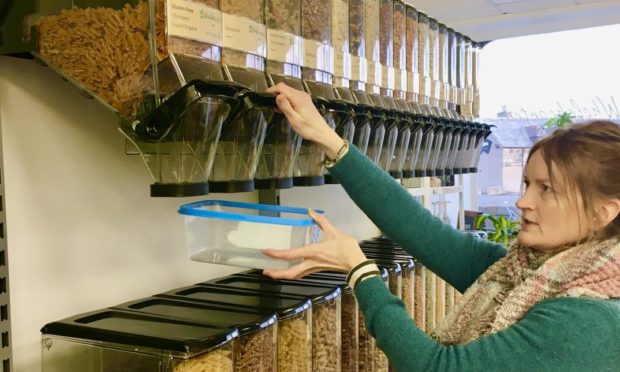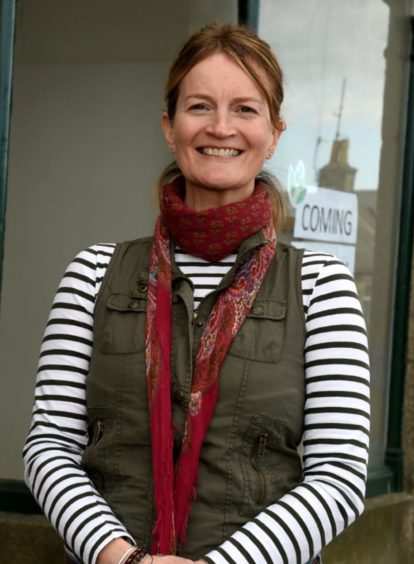Businesses in Aberdeenshire still have a chance to apply for lifeline funding to mitigate the impact of rules and restrictions introduced since October 2020 to control the spread of Covid-19.
The second phase of the shire council’s Discretionary Business Fund (DBF) is open for applications for financial aid until May 21.
DBFs were launched by the Scottish Government in January. Most other councils around Scotland have already closed off their second phase schemes.
Aberdeenshire Council has to date paid out sums to businesses totalling more than £2.2 million under its programme.
Combined with additional funding packages, it brings the total level of financial aid paid out by the local authority to £83.6m.
“Without question, this has been the most challenging time imaginable for our business community and it is hard to imagine just how hard it has been for them.”
Peter Argyle, Aberdeenshire Council
Phase one of the council’s DBF scheme provided a one-off payment of £2,000 to successful applicants.
It’s not a loan and does not have to be repaid, but firms must evidence a 30% reduction in sales owing to the impact of Covid-19.
Phase two of the scheme is providing “enhanced grants” to existing DBF recipients and also extending eligibility to business types that were previously excluded.
The fund is being delivered on a first-come, first-served basis, and grants are expected to be paid within 10 days of receipt of fully completed application forms and supporting documentation.
Shire council allocates nearly £38,000 to help Opportunity North East food and drink projects
The shire council’s infrastructure services committee met recently to discuss the level of support provided to firms during the Covid emergency through funding, ongoing town centre regeneration initiatives employability advice and retail support schemes.
Committee chairman Peter Argyle said: “I am hugely proud of the outstanding level of financial support which we as a council have provided to the business sector both through our own schemes and those funded by the Scottish Government.
“Without question, this has been the most challenging time imaginable for our business community and it is hard to imagine just how hard it has been for them.
“These funds have been a vital source of financial support for northeast businesses, many of which continue to face massive challenges on a day-to-day basis.”
Vice-chairman John Cox added: “Through these funds, Aberdeenshire Council has managed to provide crucial financial support, and through employability and bespoke funding packages it has provided guidance, training and cash support for individuals, businesses and town centres to help them overcome the challenges presented by Covid.
“The Discretionary Business Fund is an important source of vital financial support for north-east businesses which continue to face massive challenges.
“But we are aware that many local firms could be missing out on this money available to them.
“With the deadline fast approaching, I would encourage all businesses who meet the criteria to submit their applications now.”
To check if you qualify, visit the DBF section of Aberdeenshire Council’s website. If you wish to submit an application, email discretionaryfund@aberdeenshire.gov.uk
Case study 1
Wholehearted, a “scoop and weigh” wholefoods refill shop opened in Fraserburgh last July.
The business was not eligible for a grant from the DBF under phase one as a new start, however, with the extended eligibility, it was approved for a grant of £2,000 in phase two.
Co-founder Megan Scott knew it would be challenging to start a business when she did and Covid-19 restrictions have created extra headaches.
Ms Scott said financial support from the DBF provided the fledgling enterprise with a bit of “immediate financial breathing space”.
She added: “That money had been set aside for a chill unit, and the additional finance will mean we can actually afford to stock the unit and allow a bigger offering to our customers.
“It is unfortunate but Wholehearted has not really had a chance to thrive, as yet. Hopefully, with the gradual easing of the restrictions and the opportunity of some better summer weather, our business will be able to improve and flourish with the additional bit of investment”.
Case study 2
Hosting up to 35 children at any one time, Alford Breakfast and Out of School Club is a childcare business for four-to 12-year-olds in the Alford Primary School catchment area.
It was awarded £2,000 under phase one of the Discretionary Business Fund and received an enhanced grant of £8,000 in phase two.
During the Covid-19 pandemic, many parents have been working from home – resulting in the number of children attending the club reducing significantly.
Parents of non-attending children have paid no childcare fees but overheads of the business still have to be met every month.
Apart from a small cleaning grant, the community-based childcare club did not receive any previous financial support.
Aberdeenshire Council’s DBF directly supported the business to remain open and operational, and to continue employing two members of staff, while two others were retained on furlough.
Nursery owner Tanya Tough said: “All of our staff are valued members of the team and the lifeline of financial support from Aberdeenshire Council has allowed us to maintain local employment, while at the same time continuing to provide a valuable service to our community.”



